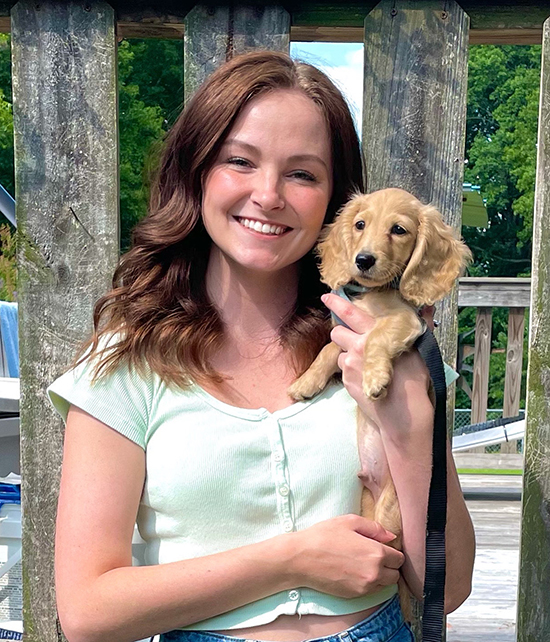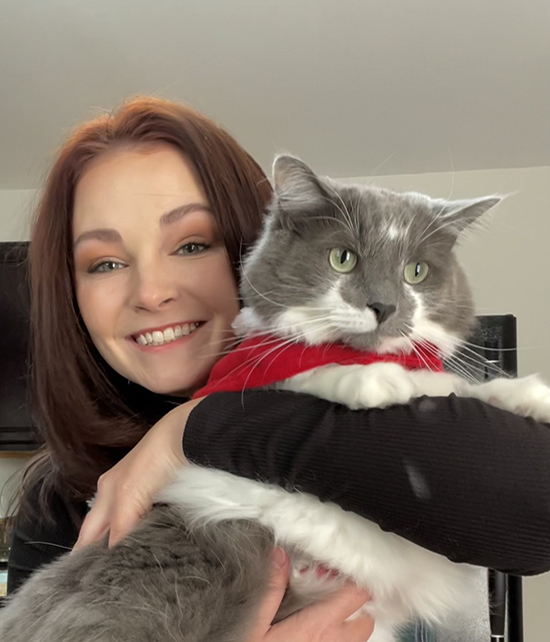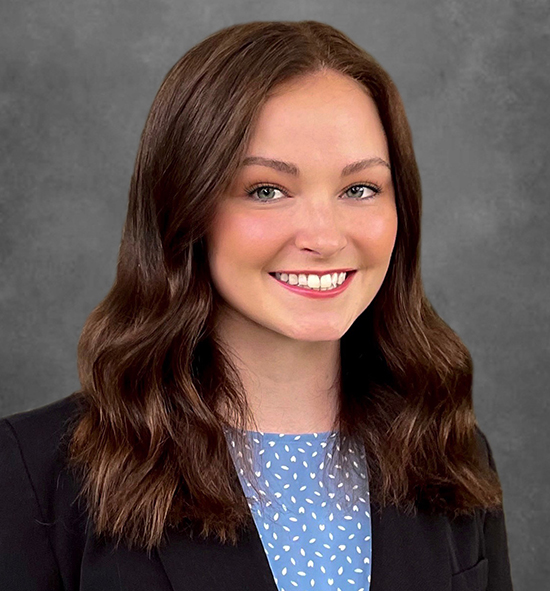By Jess Clarke
Sloane Patterson enjoyed working with dogs, cats and other pets as an undergraduate in NC State’s animal science program. The problem? They were animals, not numbers.
When taking an undergraduate accounting course, she realized financial statements, audits and tax returns were the best fit for her. “It seemed to come pretty easy to me, and I really liked the numbers part of it. I’ve always enjoyed math,” says Patterson, who will graduate in May from the Jenkins Master of Accounting (MAC) program.
With her animal science major, she earned minors in business administration and entrepreneurship in 2020. She traded veterinary clinics for a job as a tax intern in 2021 and enrolled in the MAC program last summer.


To feel confident as a full-time graduate accounting student, Patterson took courses beforehand in the Jenkins ASAP Program, a self-paced curriculum of fundamental accounting courses for eligible non-accounting majors. “I was nervous before going into the MAC program, but since I went through ASAP, I definitely felt prepared,” she says.
Working as a MAC teaching assistant has been a highlight of her graduate experience. Teaching accounting basics to undergraduates has reinforced those concepts for herself. “It has been a good experience teaching others, a great opportunity,” Patterson says.
As she considers pursuing a doctorate in accounting, the research panel discussions she attended at Poole gave her valuable insights. Professor Nathan Goldman, one of her MAC mentors, arranged the events, at which doctoral accounting students from around the United States presented their research.
Patterson also cites the sense of community and the MAC lab where students work together as assets of the program. “We have camaraderie and actual friendships,” she says.
She’s ready to start her new full-time job in August at public accounting firm Williams Overman Pierce in Raleigh, where she’ll work in the tax and audit departments initially. She wants to explore the company’s forensics unit, too.

Her position was lined up in April 2021. As the recipient of a merit-based MAC fellowship, Patterson interviewed with companies before she started the program, which led to her tuition being paid by her sponsor, Williams Overman Pierce, and NC State.
The program’s reputation was one reason Patterson chose Poole for her master’s degree.
“The MAC program is known for offering really good classes and actually preparing you for the accounting industry as a professional,” she says.
She learned a variety of skills required of accounting professionals and gained important hands-on experience. “Before the MAC program, if you told me to do a presentation I would probably be freaking out. Now I can do a presentation without even looking at the PowerPoint,” Patterson says.
In a practicum for her enterprise risk management course, she worked with the Virginia Port Authority, interviewing the leadership team and assessing risk. “Getting that real-world experience in the field was great,” she says.
Patterson’s professors — and their willingness to continue a connection with her after she graduates — are as valuable as their courses.
Bonnie Hancock, executive director of Poole’s Enterprise Risk Management Initiative, went out to eat occasionally with Patterson and other students she mentored. The tight-knit group discussed much more than accounting. “It’s been nice to know I have a professor I can always talk to,” she says of Hancock. “And it’s great having the kind of relationships with my professors where I know that later down the line, I’m always free to shoot them an email.”
This post was originally published in MAC Program.
- Categories:



